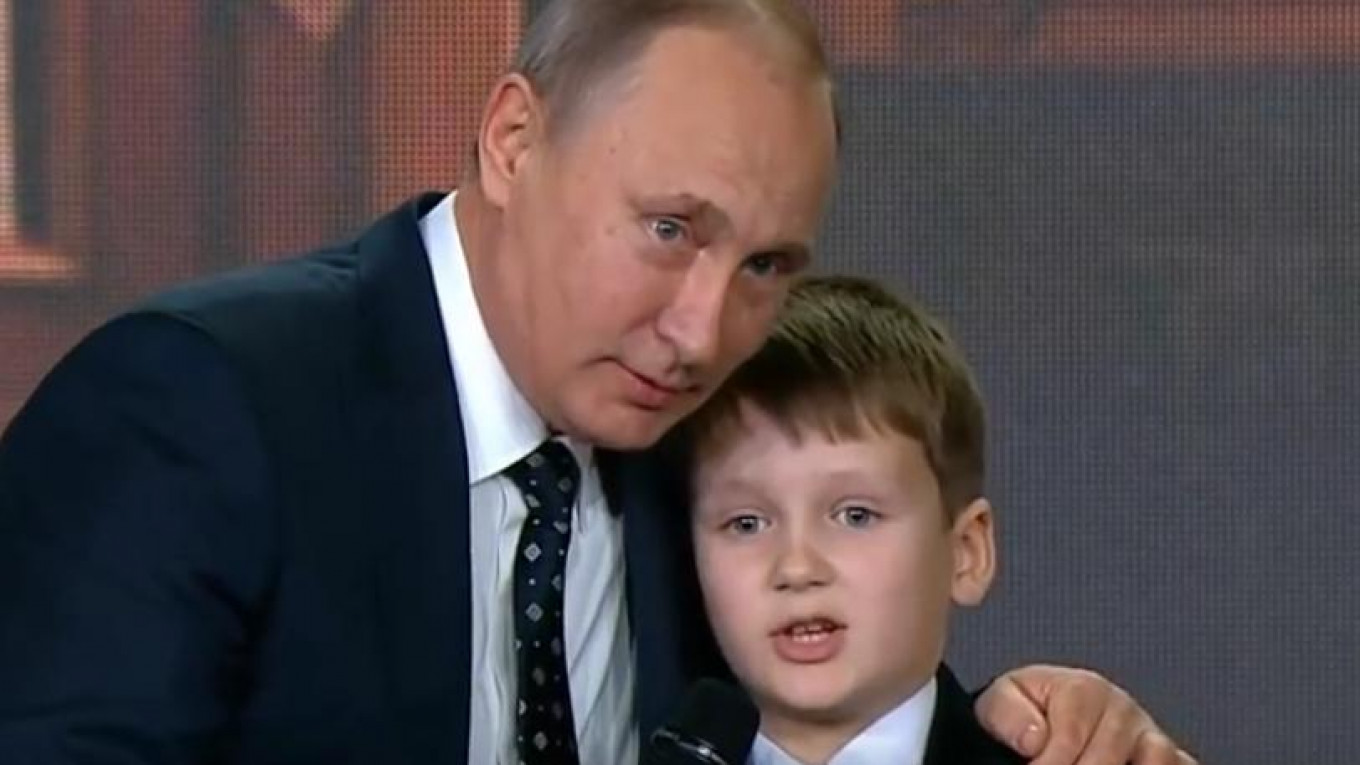Every joke contains a kernel of truth — especially if President Vladimir Putin is telling it. At a recent awards ceremony of the Russian Geographical Society, Putin asked a 9-year-old boy if he knew where Russia’s borders end. The boy began saying something about the Bering Strait when Putin made the grandiose reply that “Russia’s borders never end!” True, he immediately added: “That is a joke.”
It is difficult to view such a comment as only a joke, however, because he uttered it at the prestigious Russian Geographical Society and those words are consistent with the Kremlin’s current geopolitics and, in general, are a variation of other, seemingly graver remarks Putin has made. For example, he said that the Soviet Union “was the selfsame Russia, only with a different name,” and once promised to help Russian-speaking populations in other countries — a pledge he once made good on with the use of military force.
According to culture scholar Daniil Dondurey, Putin’s remark about Russia’s limitless borders indicates that his thinking is a throwback to the last century when states measured their greatness and wealth and leaders gauged their wisdom according to the size of their territories and the power of their weapons.
It turns out that the National Leader views Russia as a timeless empire with mutable borders subject to the influence of demographic, military, and political factors. “The history of Russia is the story of a country that colonizes. The sphere of its colonization expands along with the territory it governs. Falling or rising, it is a centuries-long movement that continues to this day.” So wrote late 19th and early 20th-century historian Vasily Klyuchevsky. Would he have said it any differently if he were alive today?
The era of colonial conquest is a thing of the past, but today’s rulers — and a significant part of the Russian population — continue to derive a great deal of satisfaction from superpower swagger and territorial expansionism.
This indicates certain priorities in terms of how the state is structured. Whereas Putin previously liked to cite the ideas of Alexander Solzhenitsyn, particularly with regard to saving the people by ensuring a decent standard of living, quality health care, and education, it seems that, now that he has failed to achieve those goals, he is placing his bets on imperial visions.
The Kremlin has taken to convincing the population that Russia is the center of wholesome and true values, that the “Russian world” is unlimited, and that it requires the acquisition of new territories.
A Message from The Moscow Times:
Dear readers,
We are facing unprecedented challenges. Russia's Prosecutor General's Office has designated The Moscow Times as an "undesirable" organization, criminalizing our work and putting our staff at risk of prosecution. This follows our earlier unjust labeling as a "foreign agent."
These actions are direct attempts to silence independent journalism in Russia. The authorities claim our work "discredits the decisions of the Russian leadership." We see things differently: we strive to provide accurate, unbiased reporting on Russia.
We, the journalists of The Moscow Times, refuse to be silenced. But to continue our work, we need your help.
Your support, no matter how small, makes a world of difference. If you can, please support us monthly starting from just $2. It's quick to set up, and every contribution makes a significant impact.
By supporting The Moscow Times, you're defending open, independent journalism in the face of repression. Thank you for standing with us.
Remind me later.






